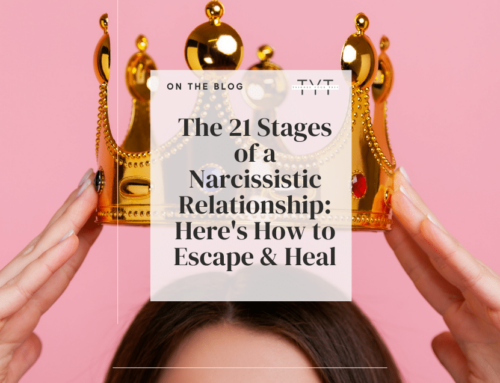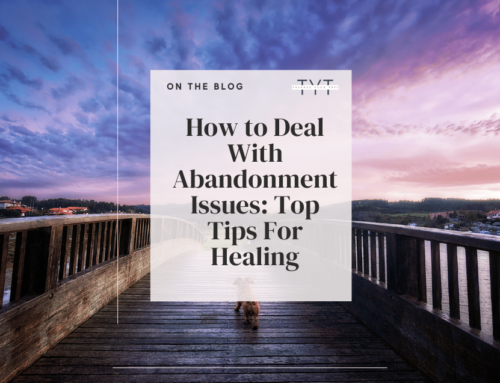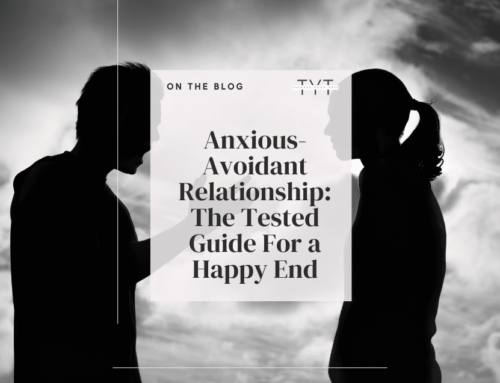While being an empath can be a gift, it is important to recognize when entering into relationships with narcissists that the two personalities can make a traumatic combination. Narcissists may appear confident and charismatic on many levels. Still, this charm will quickly wear off as their lack of empathy becomes exposed in everyday life – leading to empaths feeling overwhelmed by their demands. In short, while there may be an initial attraction between an empath and narcissist – overall compatibility should not go overlooked.
In this article, I will explore why narcissists want empathy and why empaths might have the ideal personality for narcissistic prey. Conversely, I will also provide tips for empaths trying to navigate a relationship with a narcissistic partner or friend.
If you suspect you’re an empath, understanding what attracts you to a narcissist while taking steps towards protecting yourself emotionally, you can ensure that your relationship remains healthy and balanced.
About People With Narcissistic Personality Disorder (NPD)
Narcissistic Personality Disorder (NPD) is a mental health disorder affecting individuals’ perception of themselves and their world. People with NPD often struggle to empathize with others, instead focusing on their own needs. They may be overly sensitive to criticism, lack remorse for their actions or behavior, and lack empathy for others.
People with Narcissistic Personality Disorder (NPD) are characterized by a heightened sense of self-importance, a need for admiration, and a lack of consideration for the feelings of others. Narcissists tend to come across as confident and charismatic on some levels. Still, they cannot often empathize with the sentiments of others and may become defensive when confronted.
Narcissistic people often display a pattern of grandiosity, which can manifest in different ways, including having high self-esteem and being unusually confident. They may have an exaggerated sense of self and unreasonably high self-esteem. This can be seen through their need to be the center of attention and desire for admiration from others.
Narcissists often require empaths to provide them with validation, understanding, and support – something empaths are more than happy to offer.
Empaths have a certain type of human nature, as explained below.
Related: The Narcissist Prayer: How To Dive Into the Narcissistic Soul
About Empaths
Empaths are compassionate individuals who have a profound capacity for understanding and empathizing with the feelings of others. They are deeply connected to the emotions of those around them and can often feel what other people may be feeling without being told.
Their ability to empathize with and understand the thoughts and feelings of others is a powerful tool – they can often get to the heart of a problem quickly and effectively. They are compassionate, kind-hearted individuals with an innate ability to understand others – which can immensely benefit any relationship they enter.
This nature is mostly due to their heightened sensitivity and intuition, which allows them to pick up on subtle cues that many people would miss. They also have a natural tendency to empathize deeply with the emotions of others to the extent that they reach the same emotional state. They put others’ feelings on the same footing as they put their own emotions.
However, empathetic people need to be aware that narcissists may take advantage of them for their empathizing and understanding nature – which can often lead to an imbalance and manipulation in the relationship.
Thankfully, I have the most helpful tips to help you be aware of such people and relationships.
Related: Emotional Permanence Explained & 5 Top Tips on How to Cope
Can An Empath Be a Narcissist?
While empaths are naturally compassionate and understanding individuals, it is important to note that they can also mirror and suffer from narcissism, making these two conditions overlap. This is not to be confused with the pretentious empathy that the narcissist presents as genuine care initially to win someone over and appear trustworthy.
Many professionals in psychology have suggested that empathetic people may be more likely to develop narcissism than non-empaths, especially if they lack self-esteem, don’t know how to set boundaries, and have poor confidence. Empaths might start mirroring their inherent need for validation and admiration of the narcissist, which can be easily manipulated, turning the whole narcissistic behavior of their partner into a mirroring notion and feeling for the empath. So, the empath tends to be tuned to their partner’s emotions, which might lead to developing narcissistic traits, depending on their early life circumstances.
While empathetic people usually get a deep sense of the feelings of others and build strong relationships, if they don’t know boundary setting and lack confidence, they can also suffer as a narcissist does – making their hearts just as vulnerable to developing narcissistic traits as non-empaths.
This can be a constant mental struggle for some or occur in flashes, only showing itself in some cases. Narcissistic abuse can harm the victim’s mental health, and you must be aware of the consequences of your actions. Returning to your empathetic roots, developing confidence and self-love, and understanding what’s healthy and what’s not is the best solution.
An empath may find themself to be more susceptible to the manipulations of a narcissist in toxic relationships, so empaths need to be aware of the signs and symptoms of NPD before investing in a committed relationship with a narcissist.
6 Reasons Narcissists Want Empaths For Their Narcissistic Supply
Narcissists can easily manipulate empaths
A narcissist can view an empath as an easy source of narcissistic supply, which starts essentially with the attention and admiration they crave.
Narcissists are often master manipulators, and empathetic people can be particularly vulnerable to their manipulation tactics, as they can sense the narcissist’s pain and try to “fix” them. Narcissists use a variety of manipulative tactics to get empathetic people to do what they want, such as guilt-tripping, gaslighting, hoovering, and shaming.
Empaths tend to comfort narcissist’s inflated sense
When empathetic people sense and understand the emotions of a narcissist, it helps to soothe their inflated sense of self as they provide them with validation and care. This is because an empath can see beneath the facade of a narcissist’s insecurity and recognize the underlying pain that fuels the narcissist’s need for attention.
The empath can provide validation by listening deeply, understanding profoundly, and empathizing without judgment. This allows the empath to help the narcissist in a way that no one else can – by validating their feelings and allowing them to feel safe and secure.
Therefore, empaths are particularly useful for the narcissist’s prey, as they can soothe the narcissist’s ego; thus, this is one prime reason narcissists need empathetic tendencies around them.
Narcissists exploit empaths’ ability to love
Narcissists need empathetic people to exploit their ability to love without conditions.
An empath can provide unconditional love, meaning they can still care for someone even when the person is not acting in a manner that the empath approves of or respects.
This makes the empath particularly vulnerable to being taken advantage of and manipulated by a narcissist. As an empath can love without conditions, the empath is less likely to take any actions that could push away or hurt the narcissist, making the narcissist’s whims and demands control the empath.
Unfortunately, putting this much weight on others’ emotions can lead to an empath getting caught in a cycle of reactive abuse and manipulation that can be hard to break out of without support.
Empaths tend to internalize blame
An empath may deeply feel the emotions of others so that they can internalize blame. They may suspect the situation would have played out differently if they had done something differently.
This can be especially detrimental when empathetic people are involved in relationships with narcissists, as the empath can begin to take on the blame for situations that are completely out of their control.
The empath may begin to think they cannot do anything right, making them even more vulnerable to manipulation and abuse by the narcissist.
Empaths believe that they can “fix” the narcissists
An empath may mistakenly believe they can heal a narcissist by empathizing deeply with the person, giving them what they crave, and understanding their sentiment. Empathetic people are often skilled at connecting emotionally and empathizing with others, so they may feel they can use their abilities to help someone struggling or who displays narcissistic traits. Sometimes it is tough to let go of this feeling because the person might be a family member, a narcissistic parent, or a significant other in a toxic relationship.
Unfortunately, this belief is often misplaced as empaths may become too emotionally invested in the narcissist, putting themselves at risk of emotional manipulation and abuse.
A trauma bond forms between empaths and narcissists
Forming a trauma bond with a narcissist as an empath makes it an incredibly complex dynamic, as it’s tough to break. It starts with the empath empathizing deeply with the narcissist’s sentiments and understanding their pain. This can lead to the empath feeling responsible for helping to heal the narcissist, which often involves going above and beyond to please them. At the same time, the narcissist keeps exploiting and manipulating the empath, so this vicious, toxic cycle never ends.
This notion can often be formed in a romantic relationship where clear boundaries are not set, and the empath listens to the narcissist’s demands constantly, jeopardizing their well-being.
What Happens When An Empath Leaves a Narcissist?
When an empath leaves a narcissistic relationship, they may experience a range of responses to the situation, such as relief, anxiety, guilt, and sadness. It is common to feel a lack of energy or have difficulty deciding what to do now that they have left their narcissistic partner or cut contact with a narcissistic parent or friend.
The empath will have likely been through a roller coaster of emotional abuse that has affected their mental and physical health. Manipulation and gaslighting can leave empaths feeling hopeless, confused, and with a sense of vulnerability.
When leaving a narcissistic relationship, seeking professional help from a therapist or mental health professional is important. It can be difficult to cope with the trauma inflicted on empaths during such relationships.
Professional help can provide both knowledge and support to empaths who have had their trust violated. It is also an important step towards encouraging personal growth and a route to self-improvement.
The six ways described below help an empath get started on this route and teach themselves self-love again.
6 Ways to Protect Yourself From A Narcissist
If you can self-diagnose as an empath, it is important to maintain a healthy relationship with yourself, and that can only happen when you sometimes let go of the thought that you can fix or heal people by being there for them. So, here are six ways to protect yourself from a narcissist:
Spot the narcissistic personality traits early on
Be aware of the narcissistic traits that someone may possess and recognize them early on.
Some common signs of narcissism include grandiosity, a need for admiration and attention, lack of empathy, entitlement, unwillingness to take responsibility for their mistakes, and an inability to handle criticism.
If a person displays several of these qualities, then as an empath, it will become easy to fall for narcissistic abuse. You should try to identify narcissistic patterns the more you interact with your friends, partner, and others who exhibit such behaviors.
Set firm boundaries, and don’t neglect your own needs
When an empath is in a relationship with a narcissist, they must set clear boundaries. This means empathetic people should not be afraid to say “no” when necessary, speak their truth, and stand up for themselves. You must learn to appease the narcissist’s ego and develop a life where others don’t consider you a people pleaser.
Doing so will help empaths keep a healthy distance from the narcissist and not become enmeshed in the relationship. Don’t just set clear boundaries but also learn to maintain them.
Related: 35 Best Karma Narcissist Quotes that Will Shake Your World
Practice speaking about your own emotions
As an empath, if you can express your sentiments while setting boundaries with confidence, chances are that narcissists will get discouraged in manipulating you. It will also allow you to understand better how you feel about a situation, which can lead to better decision-making skills when interacting with the narcissist.
Find an outlet or hobby that helps you practice expressing or writing your feelings.
As an empath, you need to take care of yourself, as you will often be likely to put the needs of others before your own.
Related: 140 Top Affirmations for Self-Love Help You to Build Confidence
If there are mental health issues, start therapy
If you, as an empath, have sustained mental health issues due to your toxic relationship, it is important to decide to seek professional help. Therapy can be beneficial in addressing such issues in your life. It will provide valuable guidance for dealing with post-traumatic stress disorder or other psychological ailments following the end of an abusive relationship.
Trying spiritual activities with a spiritual counselor can also help purify your energy. Such activities will purge your negative energy and create positivity and spiritual healing.
Journal on your feelings
Journaling can help you better understand yourself. Writing down thoughts can be therapeutic and a great way to analyze emotions.
As an empath, you should also journal to reflect on your past relationships with a narcissist, reflect on the lessons learned, and recognize any progress made. It can also help you protect yourself when you meet that person again. You can learn ways to act in front of that former partner that can shield you from their abuse.
Dissolve trauma bonds
Trauma bonds are dangerous as they might urge you to interact in a vicious cycle that deteriorates your mental health. To heal emotional trauma, empathetic people should practice self-care, start therapy, cultivate healthier relationships with different people, and ensure their worldview is not based on a narcissist’s opinions and behaviors.
Related: How Hyper-Independence Can Signify Trauma (& 5 Ways To Cope)
Final thoughts – The Relationship Between An Empath And Narcissist
Use the six ways mentioned above to handle a bad situation in the best way possible. I learned that these are the best ways to handle similar situations as they bring me back to my core, fill me with compassion, and remind me of my human potential.
Empaths need to learn about the traits of a narcissist to protect themselves from such relationships.
Taking proper care of yourself should always come first when interacting with narcissists, so it’s best not to hesitate to seek professional help.




